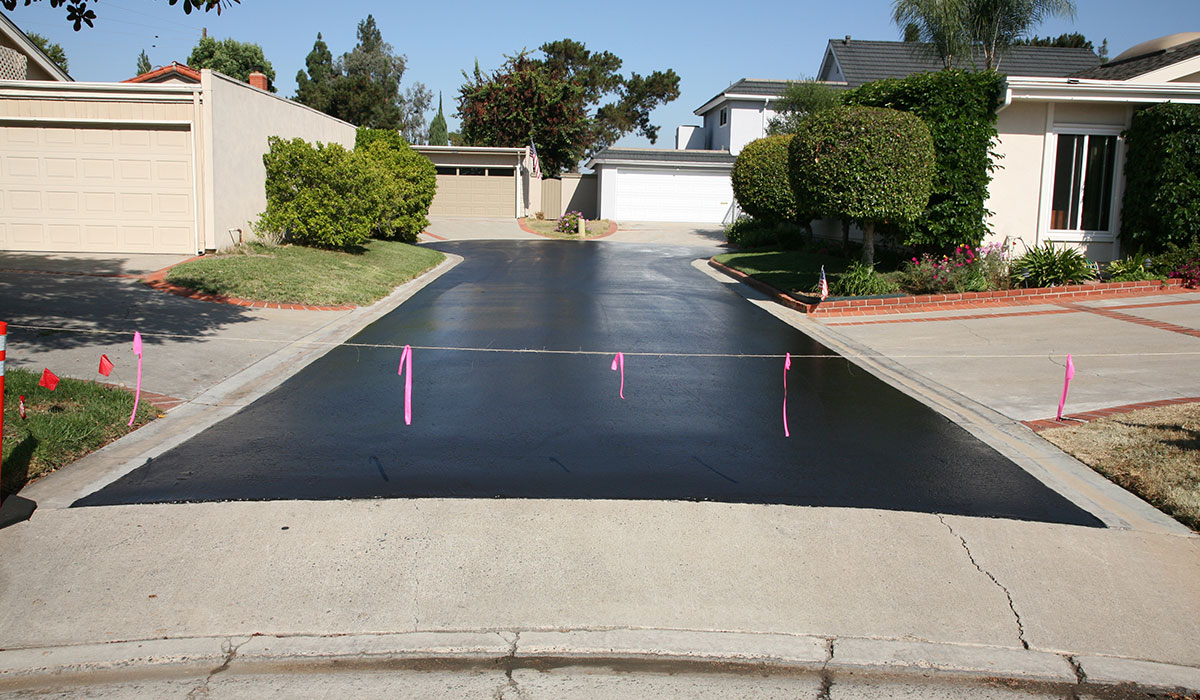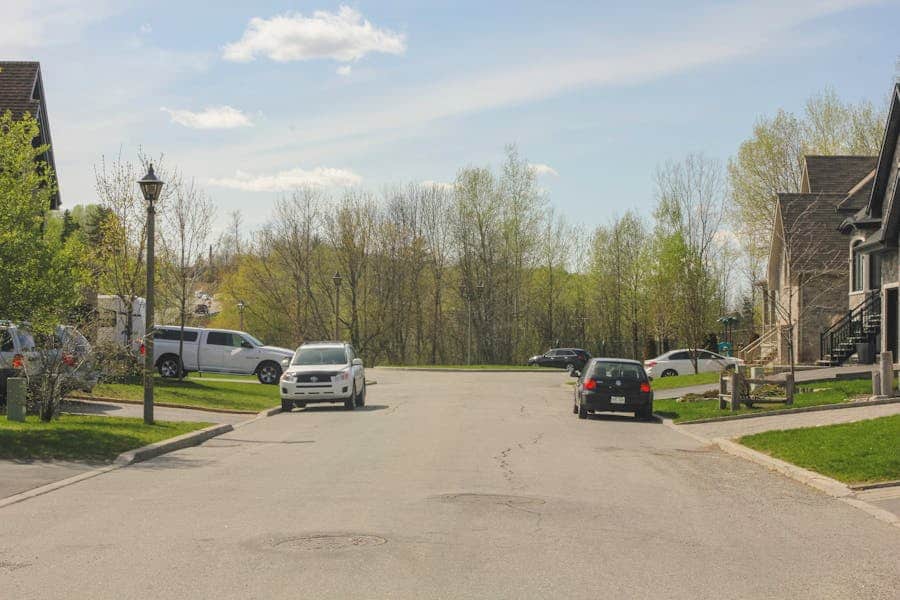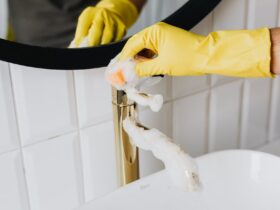You should stay off a newly paved driveway for at least 24 to 72 hours. This allows the asphalt to cure properly.
When it comes to paving a new driveway, it’s essential to know how long to stay off it after the process is completed. Properly timing your use of the driveway can ensure its longevity and prevent damage. It’s important to understand the recommended duration for staying off the freshly paved surface to avoid any potential issues.
Let’s explore the factors that influence this timeline and the best practices for ensuring the longevity of your newly paved driveway.
Initial Curing Phase
After the completion of your driveway paving project, it’s crucial to understand the initial curing phase to ensure the longevity and durability of the newly paved surface. This phase plays a significant role in allowing the asphalt to settle and harden properly, enabling it to withstand the weight and pressure of vehicles and foot traffic.
Timeframe Immediately After Paving
During the initial curing phase, it’s essential to refrain from any activities that may disrupt the newly laid asphalt. This period typically lasts for about 72 hours after the paving process. It’s important to give the asphalt ample time to cool and harden before subjecting it to any stress or pressure.
Activities To Avoid
Several activities should be avoided during the initial curing phase to prevent damage to the newly paved driveway:
- Driving: Refrain from driving any vehicles on the newly paved surface for at least 72 hours to prevent indentations and damage to the asphalt.
- Parking: Avoid parking vehicles on the newly paved driveway for the initial 72 hours to allow the asphalt to cure properly.
- Turning Wheels: It’s important not to turn the wheels of parked vehicles on the fresh asphalt to prevent creating depressions or marks.
- Heavy Objects: Do not place heavy objects such as dumpsters or equipment on the newly paved surface during the initial curing phase.
- Foot Traffic: Minimize foot traffic on the newly paved driveway to prevent any damage or impressions on the surface.
Critical First Week
After paving your driveway, it is essential to stay off it for a certain period, especially during the critical first week. During this time, the asphalt is still curing and can be easily damaged by vehicles and foot traffic. It is crucial to follow the guidelines for light use and consider temperature and weather factors to ensure the longevity and durability of your newly paved driveway.
Temperature And Weather Factors
The temperature and weather conditions can significantly affect the curing process of asphalt. It is best to pave your driveway when the temperature is above 50°F and when there is no rain forecasted for at least 24 hours. If the temperature drops below 50°F, the curing process will be slower, and the driveway will take longer to cure. Similarly, if it rains during the first week, the water can damage the asphalt and cause it to weaken, resulting in cracks and potholes.
Guidelines For Light Use
During the first week, it is recommended to keep all vehicles and heavy equipment off the newly paved driveway. For foot traffic, you can walk on the driveway, but it is best to avoid standing in one spot for an extended period. It is also essential to avoid turning your vehicle’s wheels while parked on the driveway, as this can cause damage to the asphalt. After the first week, you can gradually start using your driveway, but it is still best to avoid sudden stops and sharp turns, as these actions can cause damage to the asphalt.
It is also important to note that the curing process of asphalt can take up to six months. During this time, it is best to avoid parking heavy trucks and equipment on the driveway, as these vehicles can cause damage to the asphalt’s surface. By following these guidelines, you can ensure the longevity and durability of your newly paved driveway.
Extended Curing Time
After paving a driveway, it’s essential to stay off it for at least 24-72 hours to allow for extended curing time. This will ensure that the asphalt properly sets and hardens, providing a durable and long-lasting surface for vehicles and foot traffic.
The Role Of Asphalt Composition
When it comes to the extended curing time of a newly paved driveway, it is important to understand the role of asphalt composition. Asphalt is a mixture of aggregates, binder, and filler. The aggregates, such as crushed stone and sand, provide strength and stability to the pavement. The binder, commonly known as asphalt cement, holds the aggregates together. Lastly, the filler, usually a fine mineral material, helps to improve the overall performance of the asphalt.
Long-term Strength And Durability
The extended curing time of a newly paved driveway is crucial for the long-term strength and durability of the asphalt. During the curing process, the asphalt undergoes a chemical reaction known as oxidation. This reaction helps the asphalt to harden and reach its maximum strength. Additionally, the curing process allows the asphalt to fully bond with the aggregates, creating a sturdy and durable surface.
Proper curing ensures that the asphalt can withstand heavy traffic, extreme weather conditions, and regular wear and tear. It also helps to prevent premature cracking and deterioration, ensuring the longevity of your driveway.
It is recommended to stay off the newly paved driveway for an extended period, typically around 6 months, to allow for adequate curing and strengthening of the asphalt. During this time, it is important to avoid parking vehicles, heavy trucks, or placing any heavy objects on the surface to prevent damage and maintain the integrity of the pavement.
By giving your newly paved driveway sufficient time to cure, you can ensure that it will provide you with a durable and long-lasting surface for years to come.
Sealcoating Considerations
After sealcoating your driveway, it’s crucial to stay off it for at least 24 to 48 hours to allow the sealant to cure properly. This will ensure a durable and long-lasting finish, so it’s best to plan alternative parking arrangements during this time.
Optimal Timing For Sealcoating
Sealcoating is an essential step in maintaining the longevity and appearance of your newly paved driveway. It acts as a protective layer, preventing damage from UV rays, moisture, and chemicals. However, it’s crucial to time the sealcoating process correctly to ensure optimal results.
The ideal time to apply sealcoating to your driveway is typically 90 days after it has been paved. This waiting period allows the asphalt to cure and reach its maximum strength. Sealcoating too soon can interfere with the curing process and result in a weaker surface.
Before applying sealcoating, it’s important to check the weather forecast. The temperature should be above 50°F (10°C) and dry for at least 24 to 48 hours. Moisture or rain can hinder the effectiveness of the sealcoating, so it’s best to choose a clear and dry day for this task.
Post-sealcoating Precautions
After sealcoating your driveway, it’s crucial to take some precautions to ensure the longevity of the newly applied sealant. Following these guidelines will help maximize the effectiveness of the sealcoating and minimize potential damage.
- Avoid walking on the sealed driveway for at least 24 hours. This will allow the sealant to dry and cure properly.
- Avoid driving on the sealcoated surface for at least 48 to 72 hours. The weight of vehicles can leave tire marks or cause the sealant to become uneven.
- Do not park any heavy machinery or vehicles on the driveway for at least one week. The excessive weight can damage the freshly applied sealcoating.
- Keep the driveway clear of any debris or objects that could potentially scratch or damage the sealcoating.
- Avoid using harsh chemicals or solvents on the sealed surface, as they can break down the sealant and compromise its effectiveness.
By following these post-sealcoating precautions, you can ensure the longevity and effectiveness of your newly sealed driveway. It’s important to prioritize regular maintenance and resealing every two to three years to keep your driveway in optimal condition.
Special Circumstances
After paving a driveway, it’s recommended to wait at least 24-48 hours before walking on it and 3-5 days before driving on it. However, the specific time may vary depending on factors such as weather conditions, type of asphalt, and thickness of the pavement.
It’s best to consult with the paving contractor for specific instructions on how long to stay off the driveway after paving.
Dealing With Heavy Vehicles
When dealing with heavy vehicles on a newly paved driveway, it is crucial to exercise caution to prevent damage.
Addressing Accidental Usage
Accidental usage of a freshly paved driveway can lead to premature damage and affect the overall quality of the paving job.
Maintenance And Care Tips
After paving your driveway, it’s best to stay off for at least 72 hours to allow the asphalt to cure properly. This waiting period ensures a durable and long-lasting surface for your driveway. Proper maintenance and care during this time will help avoid any damage and ensure the longevity of the pavement.
Regular Inspection And Upkeep
Regular inspection and upkeep of your newly paved driveway is crucial to ensure its longevity. It is essential to inspect your driveway regularly for any cracks, potholes, or other damage that may occur due to weather conditions or heavy traffic. Timely repairs can prevent minor issues from becoming major problems and save you a considerable amount of money in the long run.
Seasonal Care For Driveway Longevity
Seasonal care for your newly paved driveway is vital to ensure its longevity. During the summer months, it is essential to keep your driveway clean and free from debris, as excessive heat can cause the asphalt to soften. During the winter months, it is crucial to remove snow and ice promptly to prevent damage to your driveway. Using salt or other chemicals to melt snow and ice can also cause damage to the asphalt, so it is essential to use them sparingly.
Here are some tips for maintaining your newly paved driveway:
- Regularly sweep and clean your driveway to remove debris and prevent staining.
- Sealcoat your driveway every two to three years to protect it from the elements and extend its lifespan.
- Avoid parking heavy vehicles or machinery on your driveway for extended periods to prevent damage to the asphalt.
- Fill any cracks or potholes promptly to prevent them from becoming larger issues.
- Use caution when turning or stopping on your driveway, as sudden movements can cause damage to the asphalt.
Conclusion
Proper maintenance and care of your newly paved driveway can ensure its longevity and save you money in the long run. By following these tips and conducting regular inspections, you can keep your driveway in excellent condition for years to come.

Credit: blog.asphaltkingdom.com
Frequently Asked Questions
How Long Should You Stay Off A Newly Asphalted Driveway?
After paving a newly asphalted driveway, it is recommended to stay off it for about 72 hours. This allows enough time for the asphalt to cure and dry properly, ensuring a durable and long-lasting driveway.
How Long Does It Take For A Driveway To Dry After Being Paved?
It typically takes about 24 to 72 hours for a newly paved driveway to dry and be ready for use. During this time, it’s important to avoid driving or parking on the driveway to allow it to properly cure and harden.
Waiting for this period ensures a more durable and long-lasting driveway.
How Long Do You Have To Stay Off Driveway After Sealcoating?
You should stay off your driveway for at least 24-48 hours after sealcoating. It is important to allow the sealant to dry and cure properly before using the driveway again. Avoid parking heavy vehicles or placing heavy objects on the driveway for at least 7 days after sealcoating to ensure the best results.
How Long Does It Take For A Driveway To Cure?
A newly paved driveway usually takes about 6 months to fully cure. After that, it becomes more durable and strong.
How Long Should I Wait Before Walking On A Newly Paved Driveway?
It is recommended to wait at least 24 hours before walking on a newly paved driveway.
Conclusion
It is crucial to stay off a newly paved driveway for the recommended period. Following these guidelines ensures the asphalt properly cures, leading to a stronger and more durable surface. Remember to adhere to the specified timeline for optimal results and longevity of your driveway.









Leave a Reply